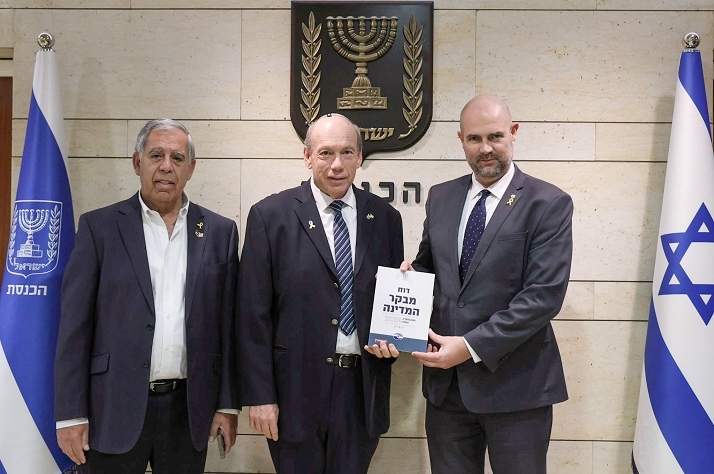The State Comptroller and Ombudsman's reports and the activity of the State Control Committee of the Knesset improve the functioning of Government entities ;increase public trust and strengthen the democracy
The State Comptroller and Ombudsman is elected by the Knesset for a 7-year term through a secret ballot, by a special majority. According to the law, the Knesset can impeach the State Comptroller from his role by a vote of a majority of at least 90 Knesset members.
Independence and non-dependence
According to the basic law: The State Comptroller, the State Comptroller is accountable to the Knesset alone and shall not be dependent on the government to fulfill his roles, and thus he is independent in a way that enables him to audit the executive branch: the State Comptroller chooses the audit topics and is sovereign to determine the terms of employment of the employees in his office.
The annual budget of the Office of the State Comptroller and Ombudsman is set in accordance with the State Comptroller's proposal and is submitted to the Knesset's Finance Committee for its approval every year. At the end of the fiscal year, the office's budget execution report is submitted to the State Control Committee of the Knesset.
The State Comptroller submits to the Knesset audit reports that assists the Knesset, as the legislative branch, to supervise the government (which is the executive branch) and the state institutes. Through this procedure, the state audit enhances the separation of powers principle, which is one of the main pillars of a democratic regime. After submitting the audit reports to the Knesset, the State Comptroller publishes these reports to public in accordance with the law.
The Interfaces with the State Control Committee of the Knesset
The State Control Committee of the Knesset plays an important role in supervising the activities of Government entities and local authorities, advances rectification of deficiencies indicated by the State Comptroller in his reports and improves the services provided to the public.
The State Comptroller reports his actions to the State Control Committee of the Knesset as frequently as he sees fit, or when the Committee requires it.
The Committee holds frequent discussions over the State Comptroller reports. In this discussions, representatives of the auditees, additional bodies and the State Comptroller or representatives on his behalf are participating.
The representatives of the auditees are required to update the members of the Committee with regards to the activities performed to rectify the deficiencies indicated in the audit or were raised in complaints handled by the Office of the Ombudsman.
Following each discussion, the Committee prepares a protocol that includes its guidelines to the auditees. According to the law, once the Committee's protocol is approved by the Knesset's plenum.












